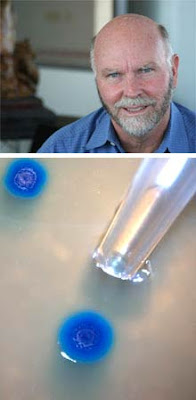Species Transplantation


It was just published that a group of scientists lead by Dr Craig Vintner ( the 1st to have his DNA read by the genome project) transfered the entire genome from one bacteria into another, making it the 1st species transplantation. He said it was like taking a Mac and turning it into a PC by inserting new software. The plan now is to take a new genome created in the lab and insert that into a cell.
Since the 1970s, scientists have moved genes - instructions to make proteins - between different organisms.
But this marks the first time that the entire instruction set, consisting of more than a million “letters” of DNA, has been transplanted, transforming one species of bacterium into another.
They are attempting to build a microbe with the minimal set of genes needed for life, with the goal of then adding other useful genes, such as ones for making biofuels.The scientists want to create new kinds of bacterium to make new types of bugs which can be used as green fuels to replace oil and coal, digest toxic waste or absorb carbon dioxide and other greenhouse gases from the atmosphere.This has created a lot of un-ease in the scientific community as many are worried about the law of unintended consequences, where other unseen events occur as a result of your actions.
There has been a great deal of fear in Europe concerning food created using genetic modification....in this case they are going to completely create a new genome and insert that.
I would anticipate an equal if not greater outcry. My concern is balance.....how does this shift the balance of power in the bacterial world. Will other organisms be capable of adapting /incorporating aspects of this modification into their own genome? Will viruses be capable of transfering mRNA via bacteriophages to other bacteria? What about antibiotic resistance?
These are all real concerns that must be thought out. Positives in regard to this research are staggering, such as being able to design bacteria capable of targeting other bacteria (MRSA),
tumor cells, arterial plaque, and many more. The current plan in this project is the enhancement of biofuel production. They anticipate success within the decade.

Comments